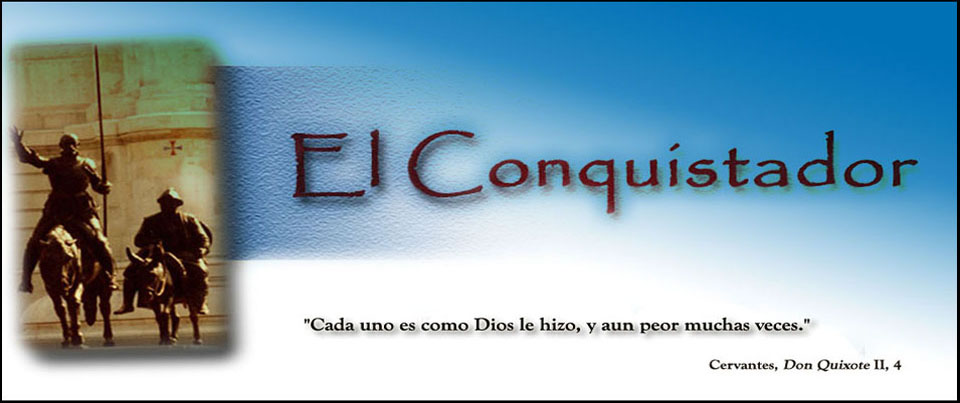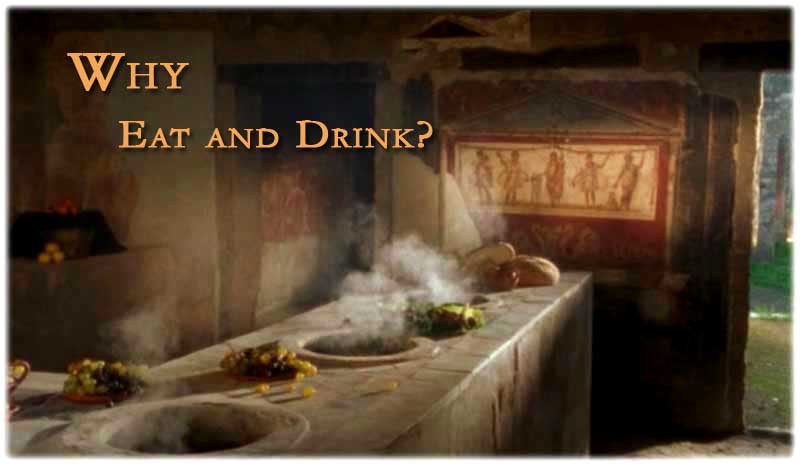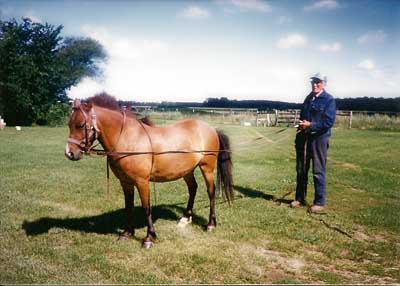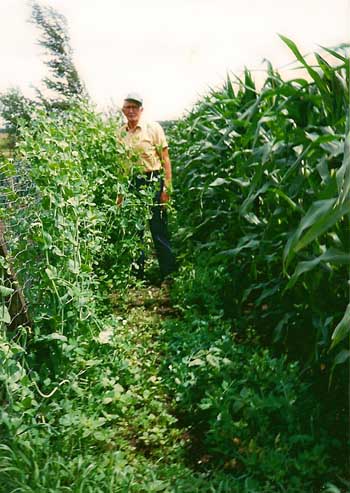Bread and Wine Making
Bread and Wine Making—
“When we break the bread, . . .
All of us share one loaf.” —1 Corinthians 10:16, 17
WATCHING my grandfather work, I always felt he had an advantage over me. As a farmer, he seemed more balanced, focused, disciplined, and strong. Somehow, urban life seemed to deprive me of his lifestyle, or at least proved more distracting and anxious.
A few summers on the farm did me some real good. Not just the fresh air and organic food, but the labor and determination and the peace and quiet were a stark contrast to city-life.
It’s not that other occupations are less important. Jesus was a carpenter’s son after all. It’s not as if farming and agricultural vocations have a monopoly on insightfulness. But consider if God has been encouraging his people to be an agricultural society.
Why did Jesus choose bread and wine to represent his body and blood? Why did he not choose something naturally occurring; for example, seeds and grapes? Instead He chose elements not found in nature by themselves. The symbolic meaning of unleavened bread and fruit of the vine are significant, but Jesus employed other natural elements in his teachings.
Consider that Jesus could have used plain seeds as a way to help us remember his body. In fact, he previously used the analogy of seeds to teach about how his body would die, be buried, and eventually be resurrected only to produce more fruit in the form of spreading the gospel.
And Jesus answered them, The hour has come for the Son of Man to be glorified. Truly, truly, I say to you, unless a grain of wheat falls into the earth and dies, it remains alone; but if it dies, it bears much fruit.
—John 12:23-24
Consider that He could have chosen water as an element for the Lord’s Supper. In fact, He had used water to teach the Samaritan woman at the well about the gift of life that he was offering.
Jesus said to her, Everyone who drinks of this water will be thirsty again, but whoever drinks of the water that I will give him will never be thirsty again. The water that I will give him will become in him a spring of water welling up to eternal life. The woman said to him, Sir, give me this water, so that I will not be thirsty or have to come here to draw water. —John 4:13-15
He could have employed any number of things that would seem to effectively represent his body and blood and aid us in remembering him. What is different about bread and wine? These are not naturally occurring. Although, seeds and grapes (or other fruit for that matter) are virtually endemic throughout nature, bread and wine require some human work and innovation to engineer.
| Refined by Our Own Hands |
Obviously, God has chosen the elements that he has for the old sacrifices and for the Lord’s Supper for a reason. Unleavened bread and fruit of the vine are the most fitting elements for the table of the Lord and perhaps in another article we will explore these individual elements more closely. But I believe he has chosen these elements refined by our own hands for a reason. I believe bread and wine making processes teach us valuable lessons that are not realized through other naturally occurring elements.
Consider the complexity involved in bread and wine making; collecting seeds, preparing the ground, planting, watering, weeding, pruning, harvesting, grinding/crushing, baking, and aging/storing. Jesus utilizes virtually every step to teach many principles in the gospels. Wine and wineskins proved an effective answer to questions regarding fasting (Matt 9:14-17). The parable of the soils and the parable of the weeds use almost all of these steps to teach the most fundamental lessons about the kingdom of heaven (Matt 13:1-43). And the winnowing fork serves as an effective analogy for judgment (Matt 3:13, Luke 22:31).
It would appear that God has been encouraging his people to be an agricultural society. The alternative would be to wander; to follow our own appetites; to hunt, kill and eat at will in order to survive. To be honest, I enjoy “surviving” in the wild with few resources and I like to practice this on a limited basis; hiking, camping, and backpacking in remote backcountry where there are few if any people. There are some who take it to the extreme and have developed unique skills to live nearly like animals, living off the land surviving one day at a time. Our culture seems to have a fascination with this mentality, evident in the number of survival-based reality TV shows that have come about in recent years. However, as interesting and fun as it may be to test survival skills, this kind of life does not seem to be the will of God for his people.
Consider the pattern of scripture and how God has been molding us into an agricultural society and what we learn from that kind of society. He promised land to Abraham first, although Israel would have to wait to realize the blessing in full. It has been God’s plan from early on to have his people live in a land “flowing with milk and honey” (Ex 3:8, 17). This description is used thirteen times in the Torah. The implication is that the land would produce bountifully and the people would settle in cities and begin to farm the land (Deut 6:10-12). Through this process they would come to be an example to the world of what covenant keeping with God is all about (Deut 8:7-20, 12:1-7).
These are the statutes and rules that you shall be careful to do in the land that the LORD, the God of your fathers, has given you to possess, all the days that you live on the earth. You shall surely destroy all the places where the nations whom you shall dispossess served their gods, on the high mountains and on the hills and under every green tree. You shall tear down their altars and dash in pieces their pillars and burn their Asherim with fire. You shall chop down the carved images of their gods and destroy their name out of that place. You shall not worship the LORD your God in that way. But you shall seek the place that the LORD your God will choose out of all your tribes to put his name and make his habitation there. There you shall go, and there you shall bring your burnt offerings and your sacrifices, your tithes and the contribution that you present, your vow offerings, your freewill offerings, and the firstborn of your herd and of your flock. And there you shall eat before the LORD your God, and you shall rejoice, you and your households, in all that you undertake, in which the LORD your God has blessed you. —Deuteronomy 12:1-7
Consider the curse on Adam and Eve after they sinned against God in the Garden of Eden. God filled the garden with every good plant yielding fruit (Gen 2:8-9). Previous to “the fall” God told Adam and Eve to eat from any tree in the garden except the tree of the knowledge of good and evil (Gen 2:15-17). The implication is that in the garden there was abundant food represented as fruit from trees. They could pick at will and eat. But after the fall God curses Adam with bread making.
And to Adam he said, “Because you have listened to the voice of your wife and have eaten of the tree of which I commanded you, ‘You shall not eat of it,’ cursed is the ground because of you; in pain you shall eat of it all the days of your life; thorns and thistles it shall bring forth for you; and you shall eat the plants of the field. By the sweat of your face you shall eat bread, till you return to the ground, for out of it you were taken; for you are dust, and to dust you shall return.” —Genesis 3:17-19
I agree the main point of the curse is the pain with which Adam will reap food. Previously, it seems he had plenty of food with little effort: lots of fruit growing on trees. In this setting, it would seem there would be little if any use for bread. Bread is not mentioned prior to the fall, only fruit from trees as food for man. So, it would seem that God was cursing man to make bread. Going forward he would need to have bread instead of the bounty of fruit that he had in the garden. The purpose of bread is not so much nutritional as practical. It is a starchy product with high calories useful in situations where there is a scarcity of fresh food or where food needs to be preserved for a while. Otherwise, fruits and vegetables have more nutritional value and would be preferred over bread.
The story of Cain and Abel also teaches us about God’s preference in sacrifice.
Now Abel was a keeper of sheep, and Cain a worker of the ground. In the course of time Cain brought to the LORD an offering of the fruit of the ground, and Abel also brought of the firstborn of his flock and of their fat portions. And the LORD had regard for Abel and his offering, but for Cain and his offering he had no regard. —Genesis 4:2-5
Although Cain was a “worker of the ground” the offering of the “fruit of the ground” was unacceptable (Gen 4:2-4). Why is Cain’s sacrifice of food not acceptable but later, under the law of Moses, food and drink offerings figured prominently? Could it be that Cain brought food directly from the harvest to the alter without refining it; without the extra effort that fine flour and wine require? The scripture doesn’t specify and we understand the necessity of blood sacrifice as perhaps the reason. In fact, food and drink offerings mostly accompanied an animal sacrifice in the law of Moses.
Moving further along in salvation history, the story of Jacob and Esau sheds some more light on this line of thought (Gen 25:27-34). God chose Jacob from the beginning. I do not think it a coincidence that Jacob cooked food, while Esau was a man of the field and a hunter living by his appetites. Eventually, Jacob seized the opportunity to take advantage of Esau’s appetite. Are we witnessing the contrast of an agricultural mindset and that of a wandering animal-like hunter?
Later as Jacob swindled a blessing out of Isaac that was meant for Esau we see this contrast again (Gen 27). Consider the differences between the blessings given to Jacob and Esau.
For Jacob: “May God give you of the dew of heaven and of the fatness of the earth and plenty of grain and wine. Let peoples serve you, and nations bow down to you. Be lord over your brothers, and may your mother’s sons bow down to you. Cursed be everyone who curses you, and blessed be everyone who blesses you!” —Genesis 27:28-29
For Esau: “Behold, away from the fatness of the earth shall your dwelling be, and away from the dew of heaven on high. By your sword you shall live, and you shall serve your brother; but when you grow restless you shall break his yoke from your neck.” —Genesis 27:39-40
Jacob is blessed with “plenty of grain and wine” and Esau essentially cursed to live “by his sword,” “away from the dew of heaven.” Esau is destined to always be a hunter instead of reaping the benefits of well-watered farmland. Again, it becomes clear that God has a plan for his chosen people that includes agriculture. This practice of growing and refining food would sustain his people and teach important lessons. It would serve as the basis for supporting the system of animal, food and drink sacrifices which in turn serve as a shadow of Jesus’ sacrifice (Heb 8:5, 10:1). Eventually, this system would provide the elements by which we “remember” our Lord.
| Three Lessons |
Irather believe there are three main lessons that bread and wine making are teaching us about faith in God.
First, the Lord desires sacrifice that costs us something. Wild berries or wild animals do not serve to teach us the cost of sacrifice as much as fine flour, wine, or domesticated livestock. The later take extra effort on our part. If we could collect wild fruit or vegetables alone and offer them to God, it is as if we are taking what God has given to us and just giving it back to him. Real sacrifice should cost something. Consider the heart of David as he sought a place to build an altar to avert a plague that was killing thousands of Israelites.
And David said to Ornan, “Give me the site of the threshing floor that I may build on it an altar to the LORD–give it to me at its full price–that the plague may be averted from the people.” Then Ornan said to David, “Take it, and let my lord the king do what seems good to him. See, I give the oxen for burnt offerings and the threshing sledges for the wood and the wheat for a grain offering; I give it all.” But King David said to Ornan, “No, but I will buy them for the full price. I will not take for the LORD what is yours, nor offer burnt offerings that cost me nothing.” So David paid Ornan 600 shekels of gold by weight for the site. —1 Chronicles 21:22-25
Where did David learn this principle? Maybe from the time he spent as a shepherd; pasturing, protecting, and watering the flock. He knew firsthand how these animals would be used in sacrifice and how they needed to be cared for intently. God did not accept wild animals for sacrifice. He desired those animals that we had nurtured with our own hands.
Second, agriculture teaches us to anticipate. Three of the holy feasts of God as described in Leviticus 23 were centered around the harvest. The feast of firstfruits celebrated the first harvest of barley, Pentecost (the feast of weeks) celebrated the first harvest of wheat, and the feast of booths (tabernacles, ingathering) was celebrated after the harvest was complete. For people of God, celebrating his gift of food is a recognition of our dependence on him. As he gives the land, the appropriate weather, and enough water we recognize his face is shining upon us.
Yet, we cannot sit idly by and wait. There is much work to be done today as we prepare for the harvest. There is a narrow window for planting and harvesting so as not to be too late or too early and suffer from unripe or overripe crops. All of this takes planning and anticipation. The same is true for tending herds of livestock: moving them along in the right rhythm, finding balance in water, food and work.
The same is true in our faith. Christians anticipate. We don’t live for the here and now. In fact, we recognize the here and now to be deceptive. Satan would rather we become lazy and have a short term outlook (2 Cor 4:4-11). Salvation, like harvesting, is a journey. Jesus chided those who live for temporary rewards (Matt 6:1-16). What am I/are you living for?
This pattern is reinforced in the Lord’s Supper. First we eat the unleavened bread: the “bread of affliction” (Deut 16:3). Then follows the sweet fruit of the vine; a tasty reward. Furthermore, Paul says the Lord’s Supper has a forward looking aspect to it. We do not merely dwell on the past and the present in our remembrance of Christ. Paul says “For as often as you eat this bread and drink the cup, you proclaim the Lord’s death until he comes” (1 Cor 11:26). Even Jesus harkened his disciples to remember him in this way. “I tell you I will not drink again of this fruit of the vine until that day when I drink it new with you in my Father’s kingdom” (Matt 26:29).
Finally, agriculture teaches us to be a community. In order to harvest crops and tend livestock successfully, much has to be invested in time and labor. Families must settle down, often in a vulnerable position where there is plenty of flat space. Tools are fashioned, towns are born, cities rise up and a network of interdependence develops. Is this not the picture of the kingdom of heaven? Jesus said, “A city set on a hill cannot be hidden” (Matt 5:14). How is the church portrayed at the end of the New Testament? As a city! (Rev 21).
This may be the most important lesson we learn from bread and wine making. It is a team effort. Even though I may not lay a sickle to the grain or crush any grapes, I have a supporting role in the community. It is this way in the church and at the Lord’s table. When we partake of the body and the blood of Christ, we do not do it in private. The New Testament pattern of the Lord’s Supper is one of public fellowship. Communion is not isolation. Families work together and eat together.
When we bless the cup of blessing aren’t we sharing in the blood of Christ? When we break the bread aren’t we sharing in the body of Christ? Because there is one loaf, we are one body, although we are many individuals. All of us share one loaf. —1 Corinthians 10:16-17
Bread making may have been a curse for Adam. However, as we recognize the lessons God is teaching us through the elements of the Lord’s Supper, bread and wine making have become a blessing. My wife called it the “curse that becomes a blessing.” The scripture is ripe with this theme and it is fulfilled in our Lord’s death on a cross and his resurrection from the dead (Gal 3:13). I pray next time we remember these things with bread and fruit of the vine, we will be more mindful of how we sacrifice to the Lord, how we anticipate his coming, and how we commune with each other and with the Lord.
Leave a Reply
You must be logged in to post a comment.



